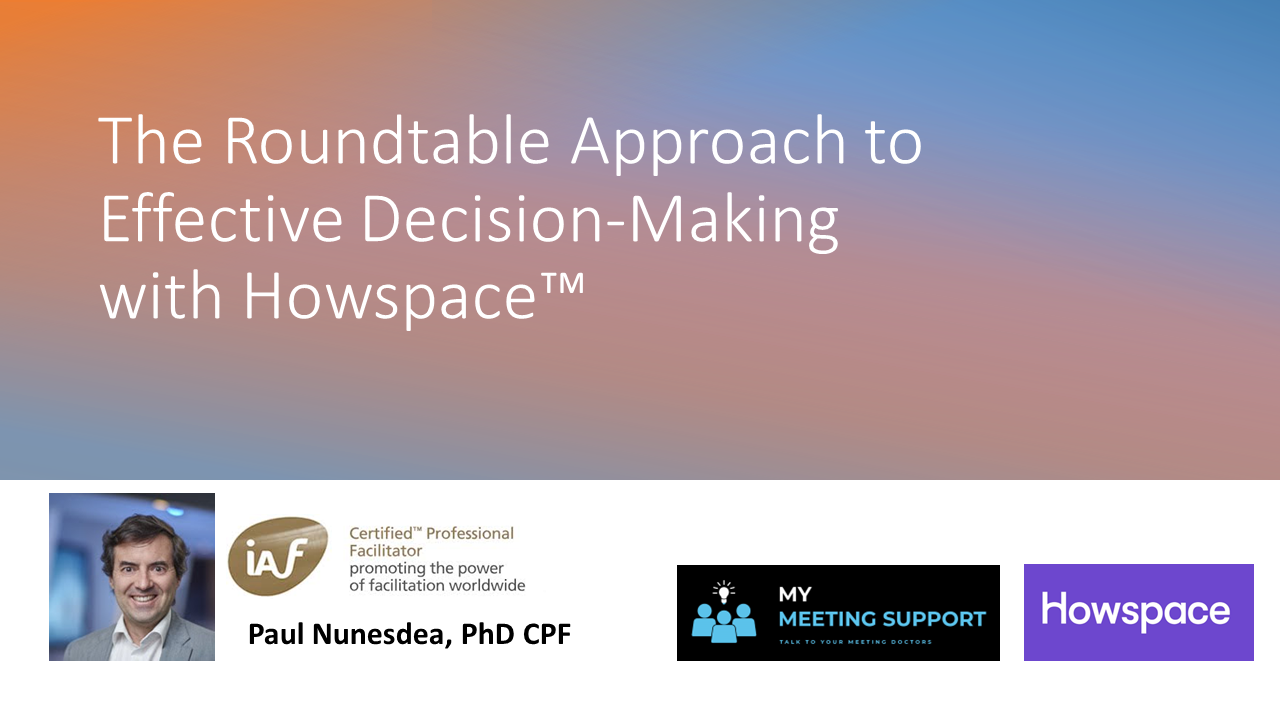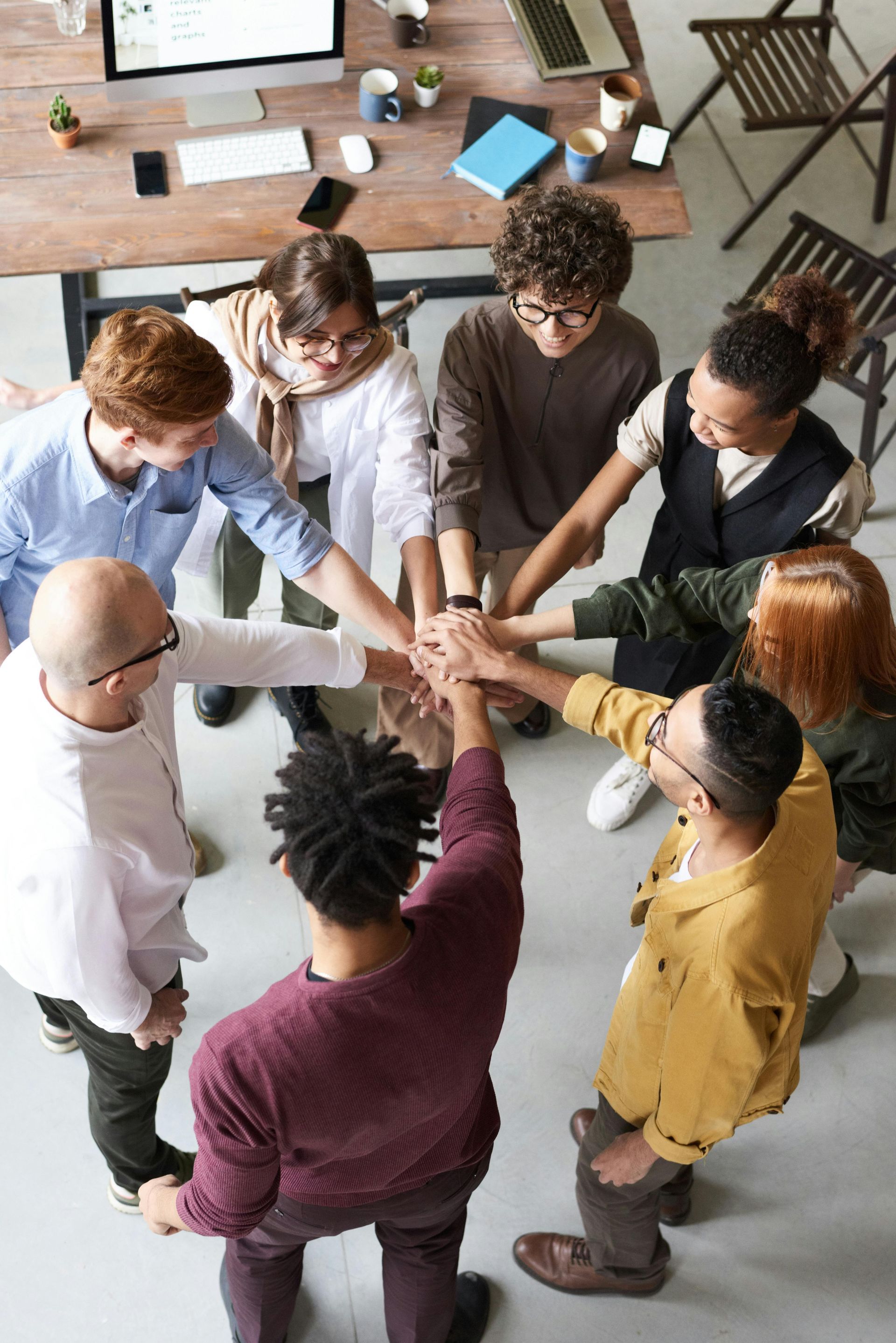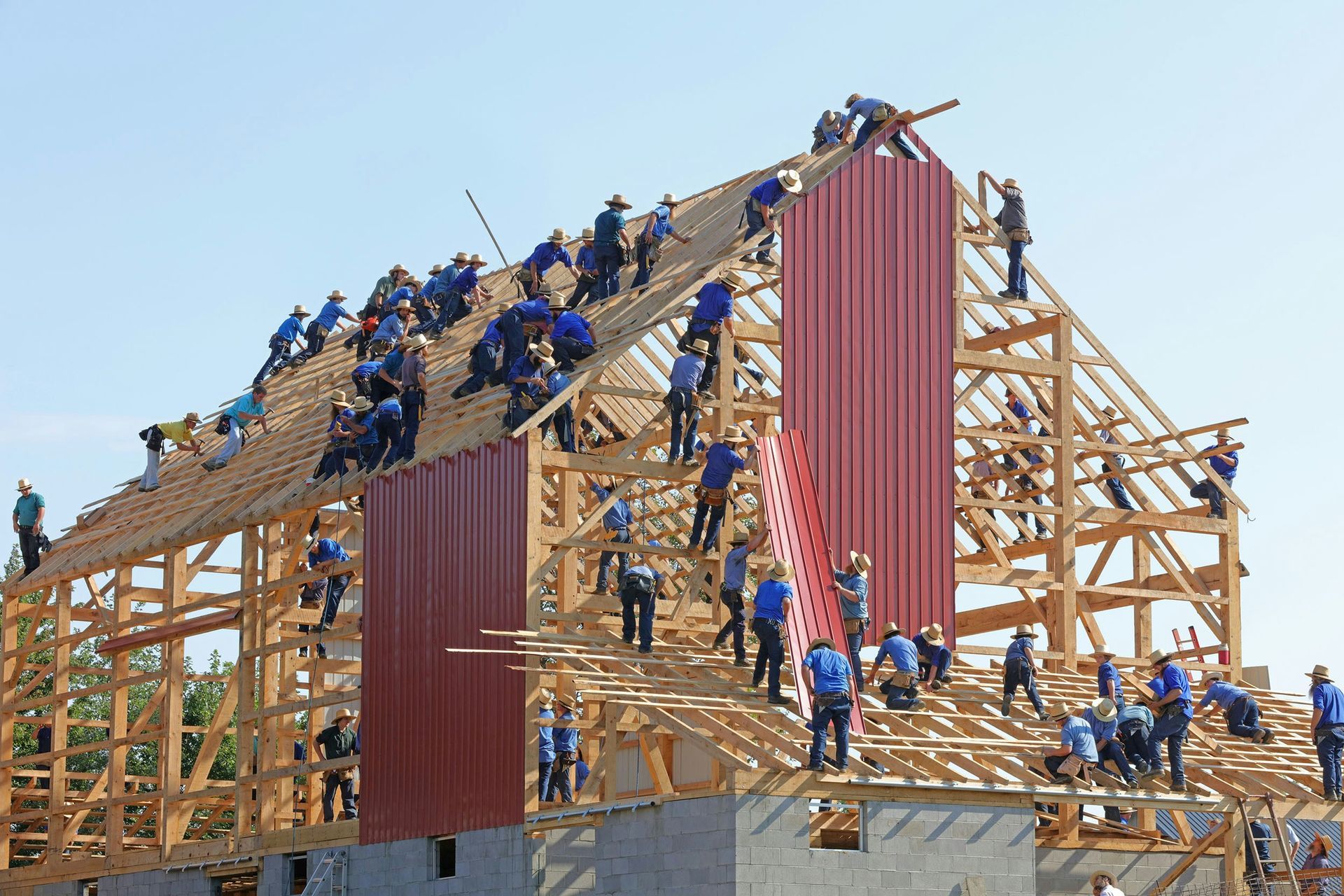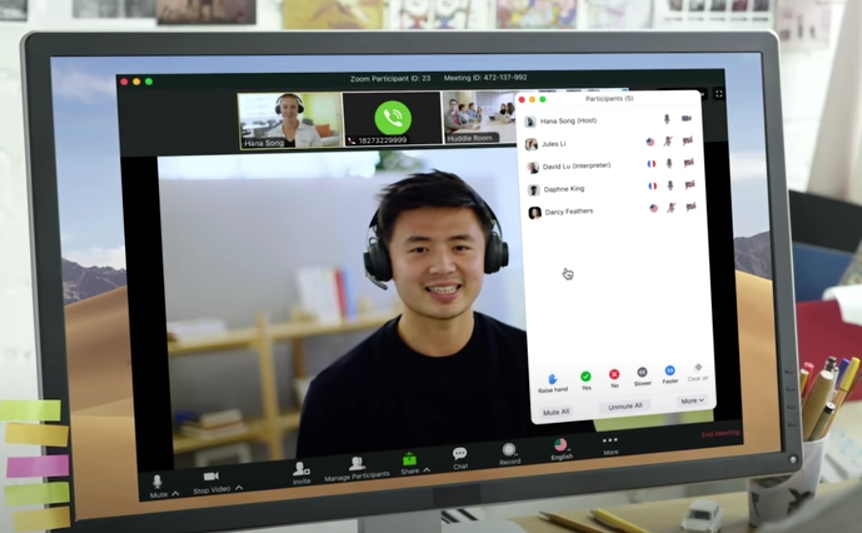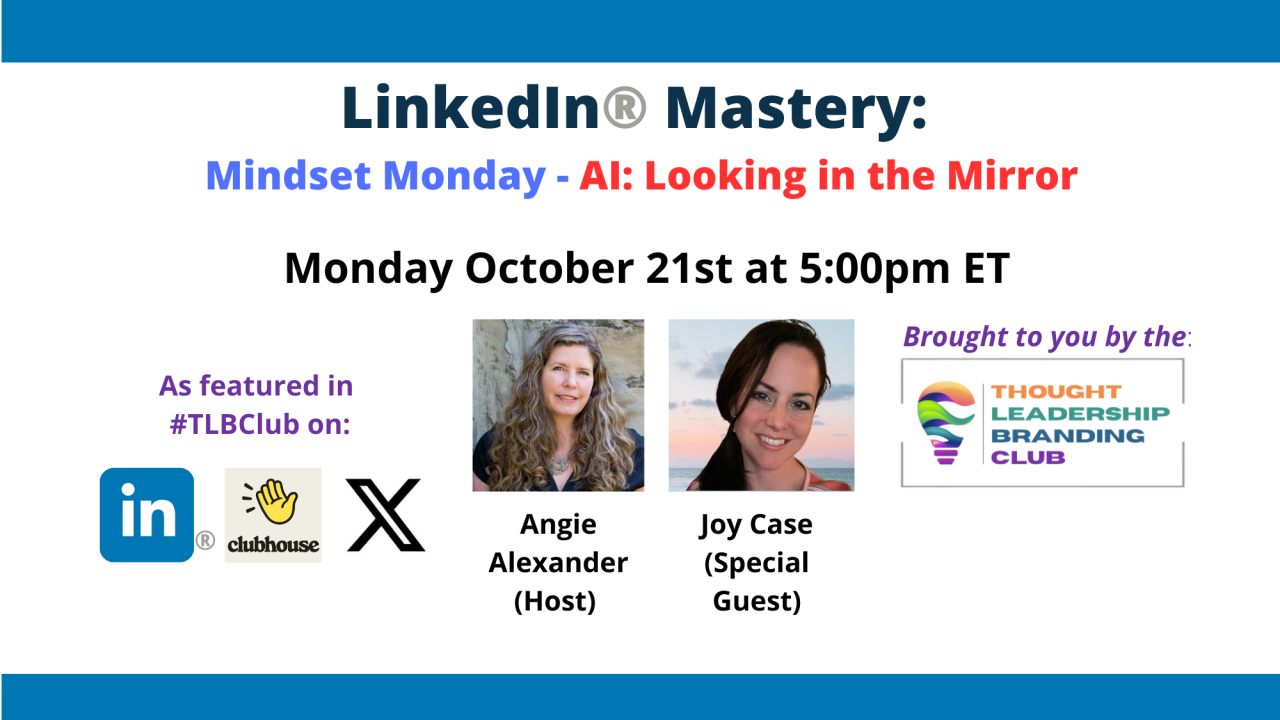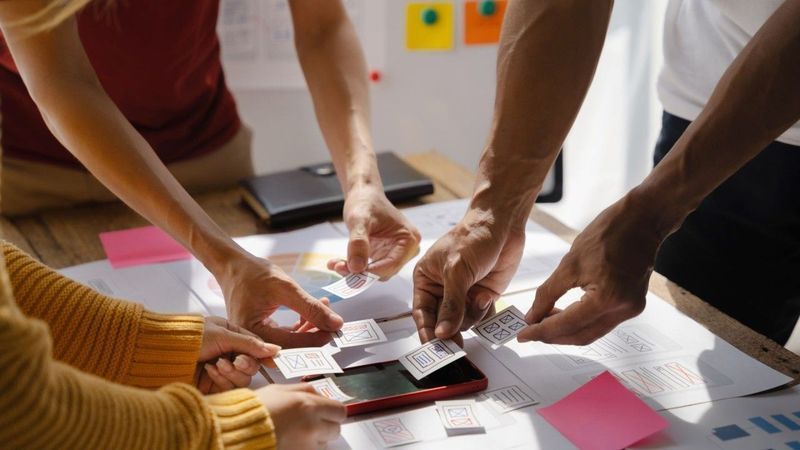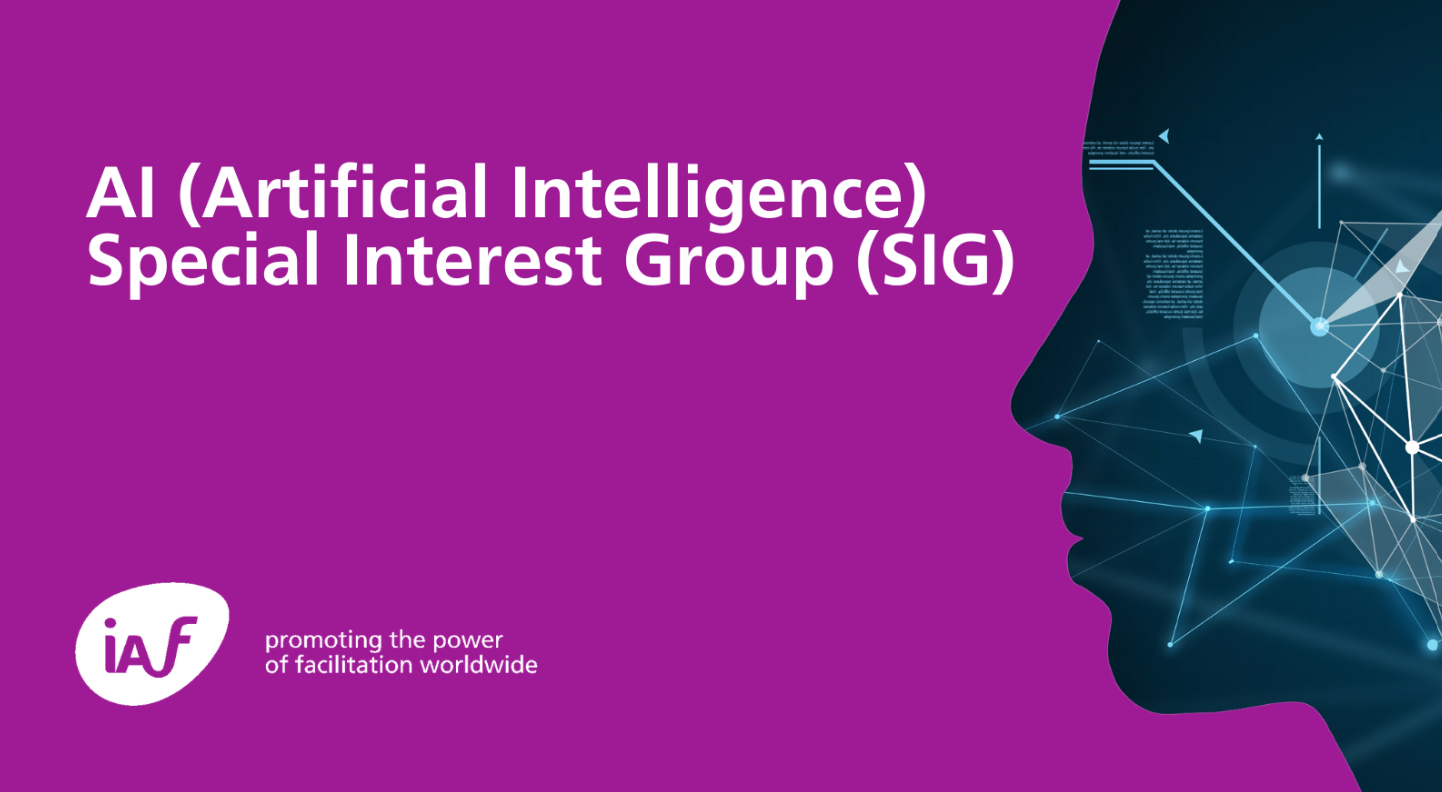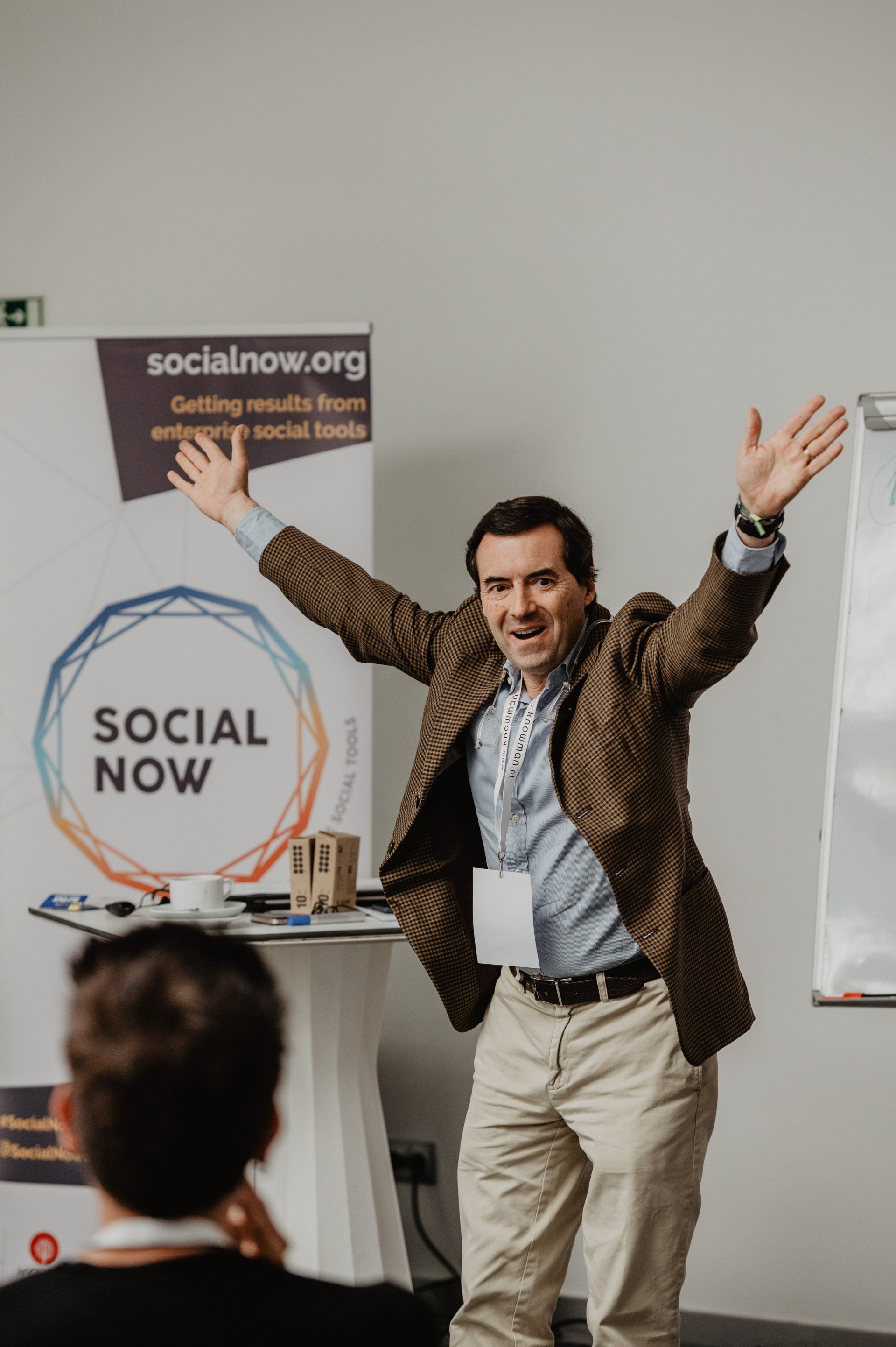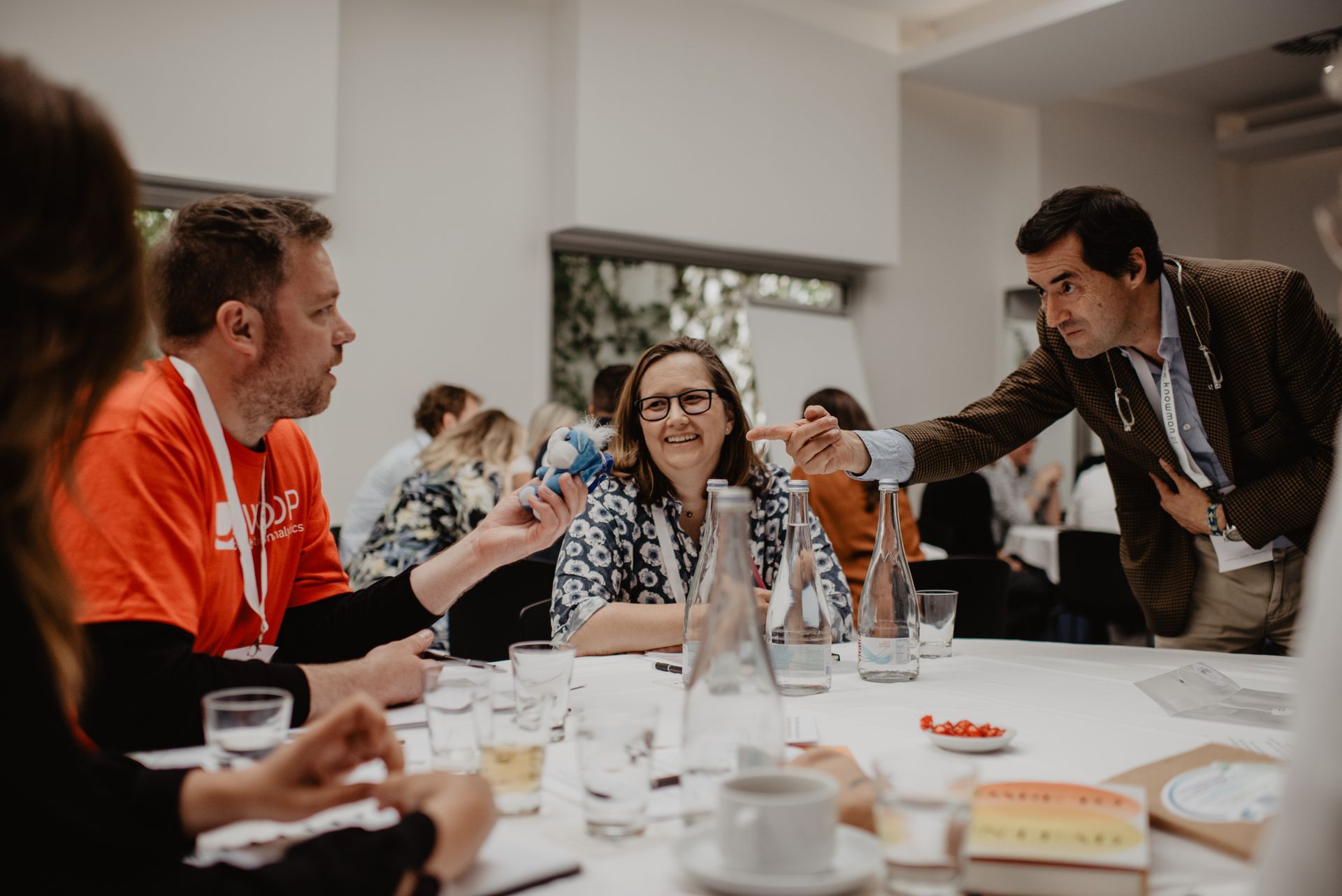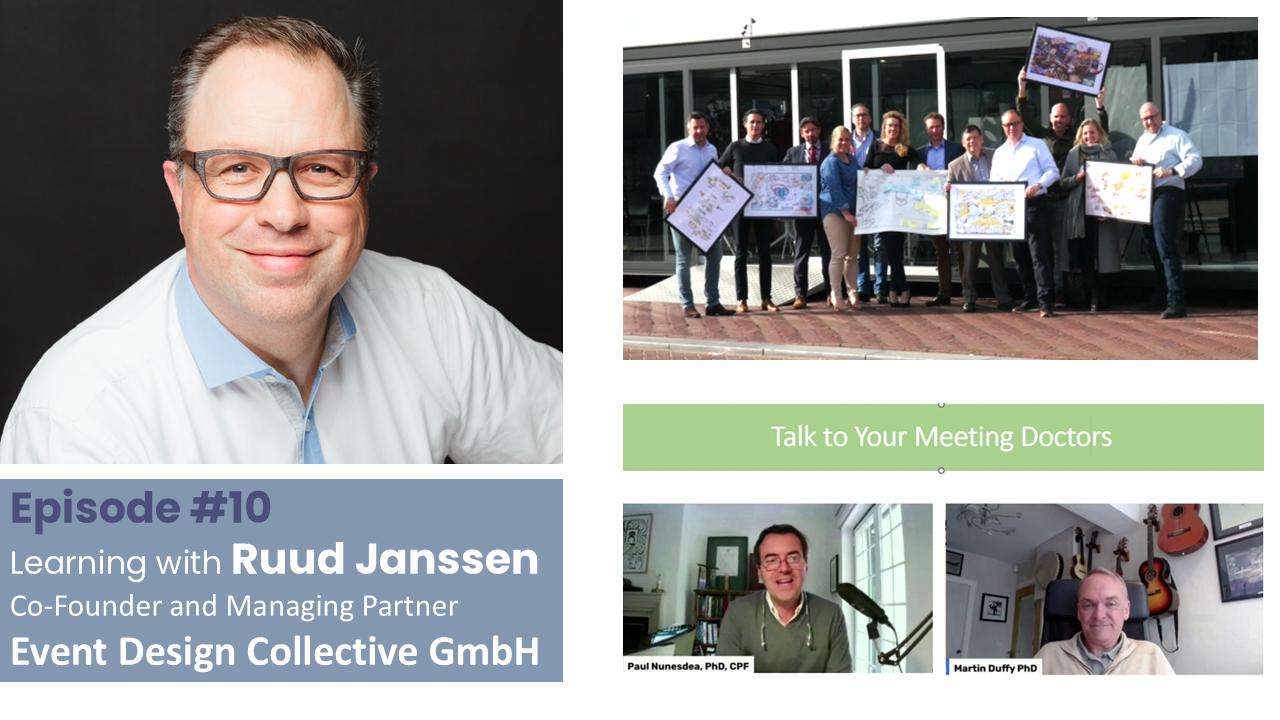
Exploring AI-Enhanced Group Facilitation
Insights from the 'Digital Facilitation 2.0' Workshop at Facilitate 2023
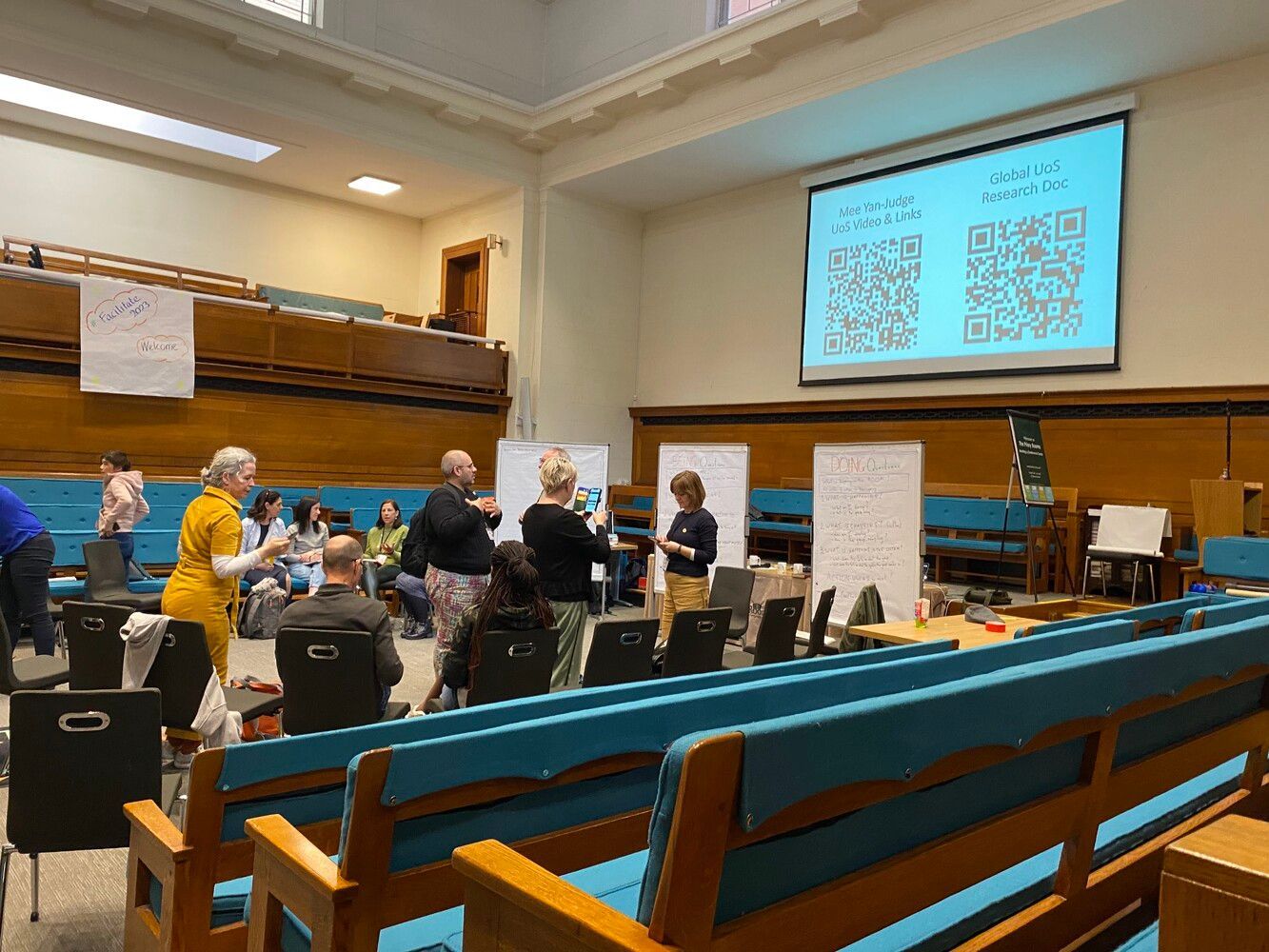
In May of this year, I had the honor of co-hosting a workshop titled "Digital Facilitation 2.0: Leveraging AI and Howspace for Enhanced Collaboration and Decision-Making." This event took place in Birmingham and was a collaborative effort co-created by Lowene Chan, with remote support from our esteemed colleague, Peter Seah. Our primary goal was to illuminate the vast potential of AI in group facilitation. Our workshop was featured as a part of the International Association of Facilitators (IAF) England & Wales annual conference, known as Facilitate 2023, and it prominently showcased the integration of AI within the Howspace digital platform.
Our workshop drew professionals and facilitators from various fields, all eager to explore the advantages of incorporating AI and technology into their facilitation processes.
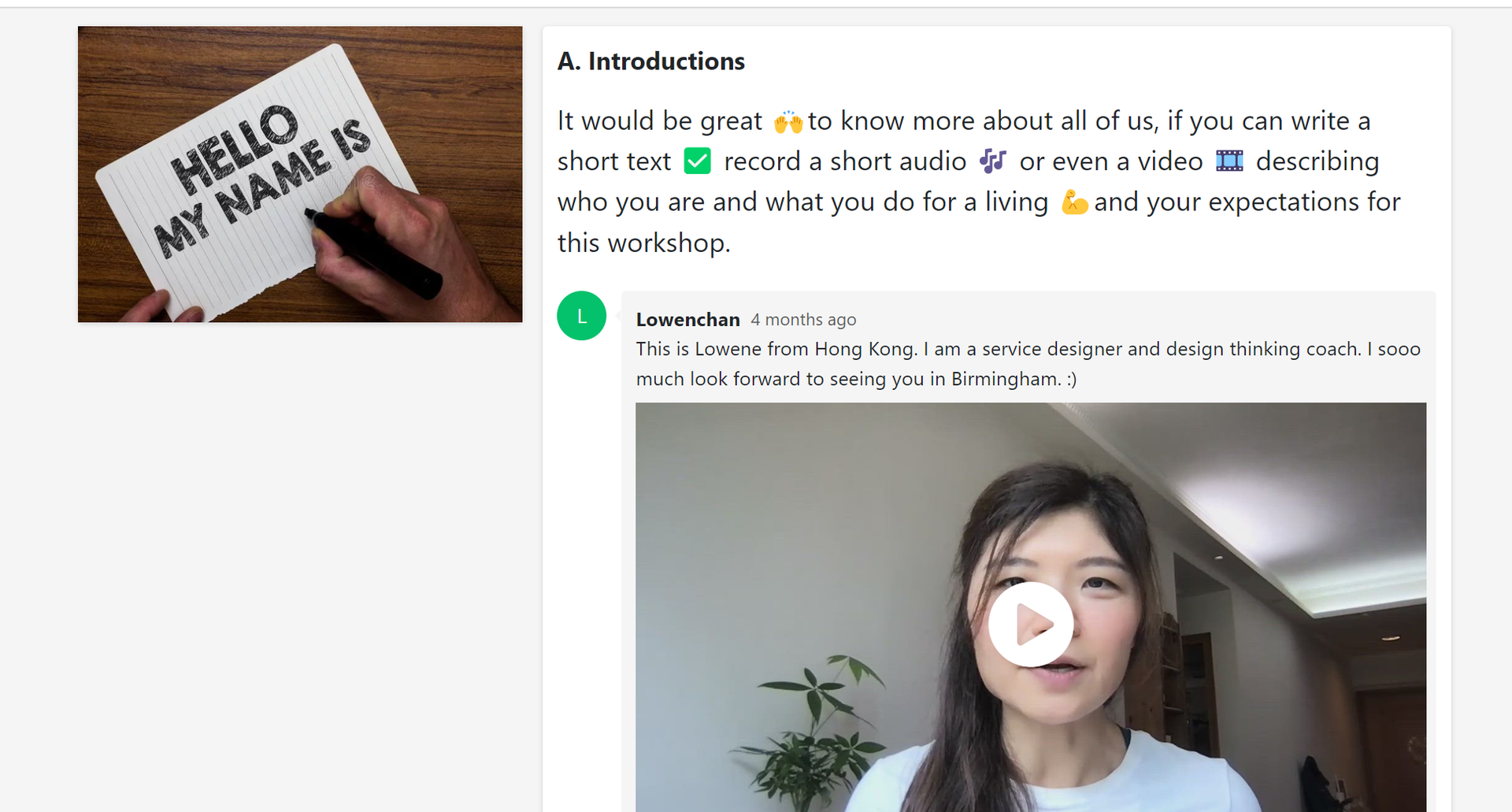
Pre-Workshop Activities
One standout feature of using a digital collaboration platform like Howspace is the ability to kickstart the session weeks before the actual synchronous event. This means that participants can engage in preparatory activities, setting the stage for a more enriching experience. We achieved this by sharing introductory videos to familiarize attendees with the workshop hosts and to invite them to begin reflecting on and discussing workshop content.
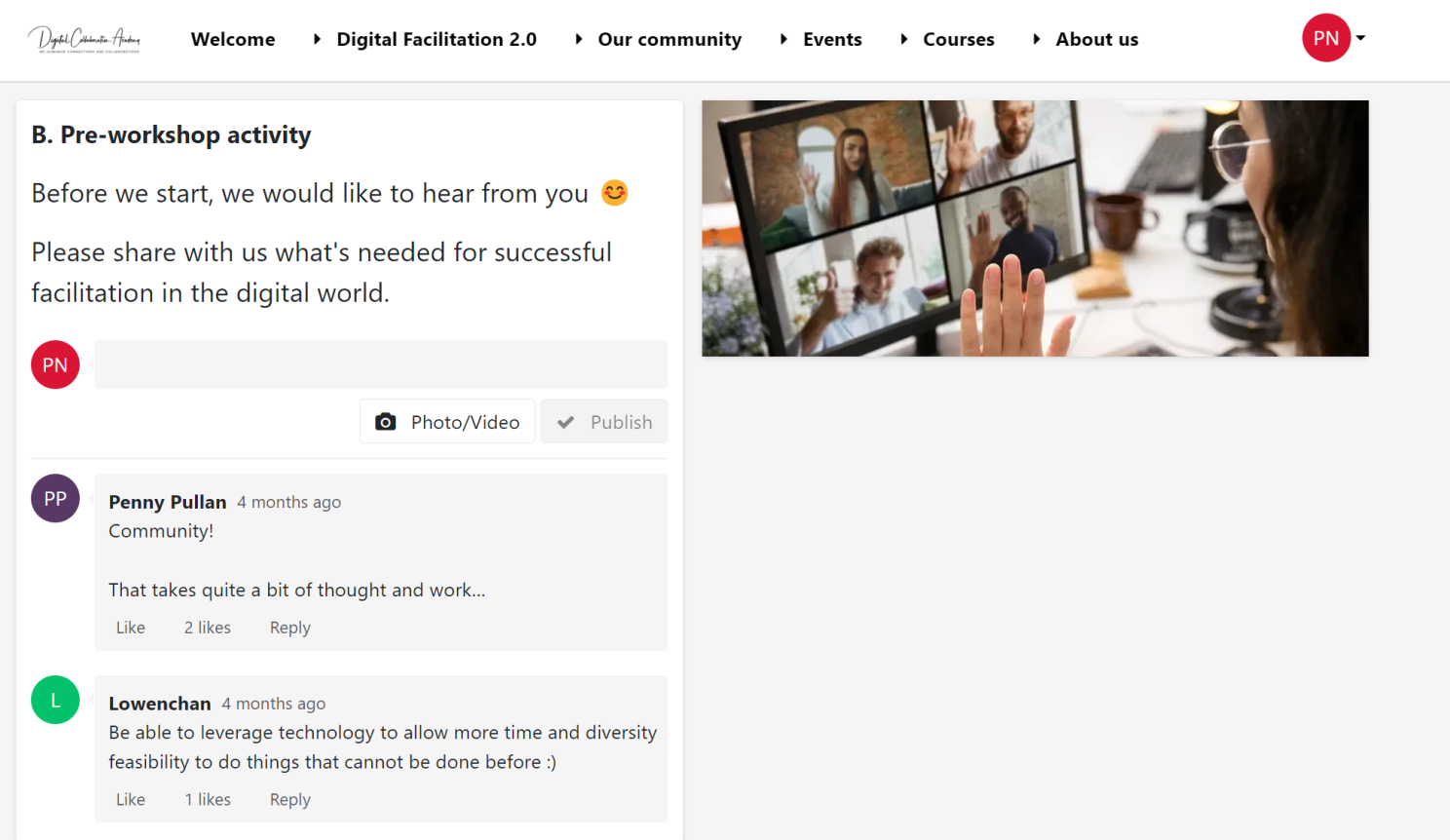
On-Site Workshop
The much-anticipated day arrived when we finally convened in person to host our workshop at The Priory Rooms Meeting & Conference Centre. It was truly remarkable to witness the flexibility and support provided by the IAF conference team, led by the invaluable Paul Brand. In just a matter of minutes, they seamlessly transformed a traditionally face-to-face event into a fully functional hybrid meeting setup. This transition was a testament to their adaptability and dedication.
Interestingly, while our colleagues in the UK are well-versed in hybrid event setups, they had opted for an exclusively face-to-face annual conference this time. It was clear that virtual work fatigue had played a role in this decision. However, our team was determined to explore the potential of AI, and with their guidance, attendees embarked on an eye-opening journey into the realm of AI's role in group facilitation. This journey prompted a reevaluation of established boundaries in collaboration and decision-making.
Workshop Schedule Overview:
Our workshop was thoughtfully structured as follows:
I. Introduction and welcome (ensuring alignment) - 5'
II. Checking previous AI facilitation experience (group discussion) - 10'
III. Experimental 2x1 session (activity explanation) - 5'
a. On-site with paper notes (1-2-4-ALL) - 20'
- Reflect for one minute - 1'
- Share ideas in pairs - 5'
- Share notes in groups of four - 5'
- Each group verbally shares notes with the larger group and annotates on a flipchart - 10'
b. Online participants using Howspace (1-2-4-ALL on Zoom) - 20'
- Reflect for one minute - 1'
- Share ideas in pairs - 5'
- Type group notes on Howspace - 5'
- The group reads the notes' summary on Howspace - 10'
IV. Debrief and discussion on AI usage (both online and on-site groups) - 10'
V. Conclusion and wrap-up - 5'
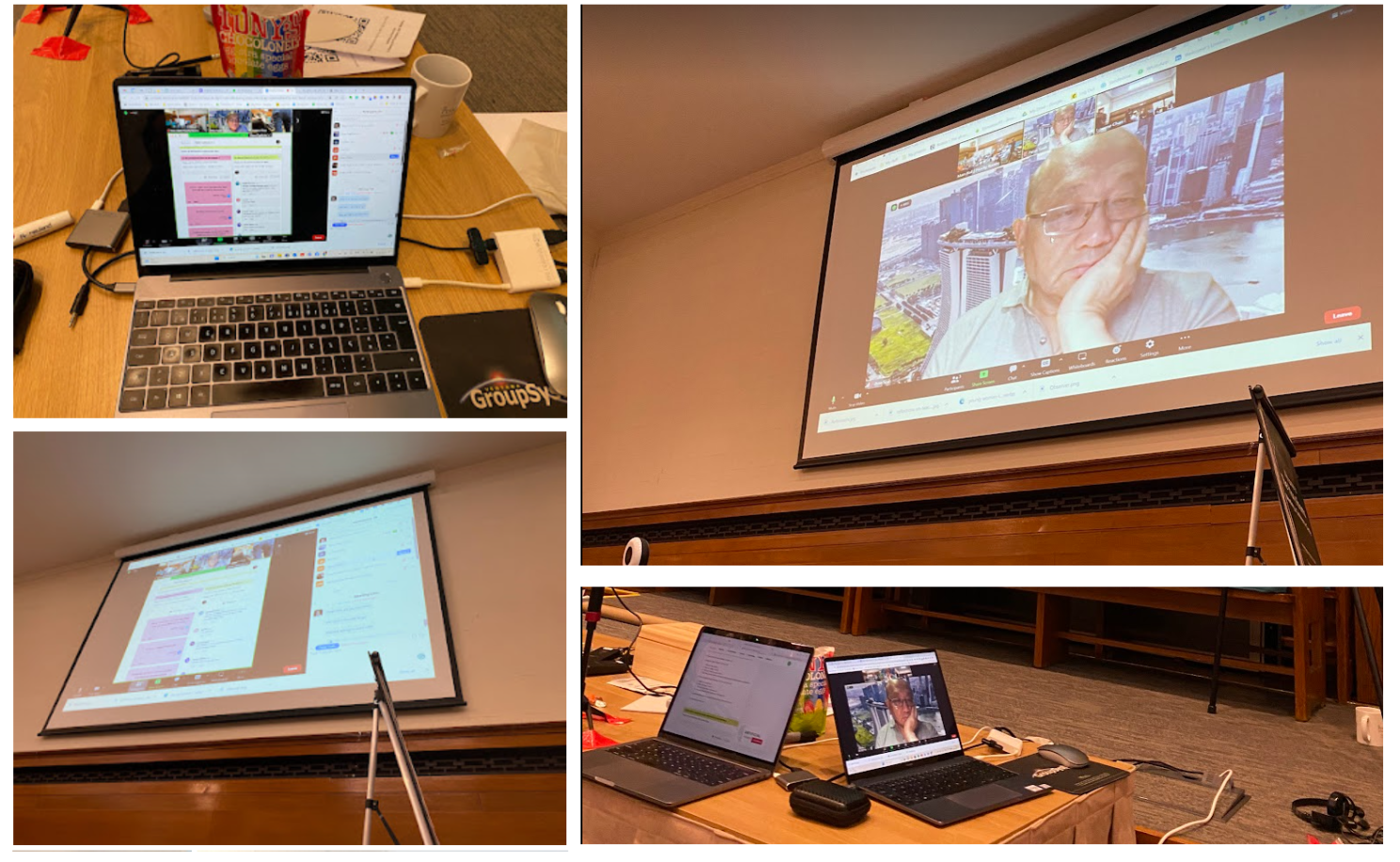
Our workshop design featured smaller group activities, commencing with pre-workshop discussions and culminating in an experimental session where half of the participants engaged in a "paper and pen" experience facilitated by Lowene, while the other half used Howspace in a "digital room." This hands-on participation allowed attendees to directly witness the benefits of AI-driven collaboration, recognizing its potential to boost efficiency and elevate decision-making processes.
The interactive nature and the seamless integration of AI within Howspace left participants genuinely intrigued by the myriad possibilities.
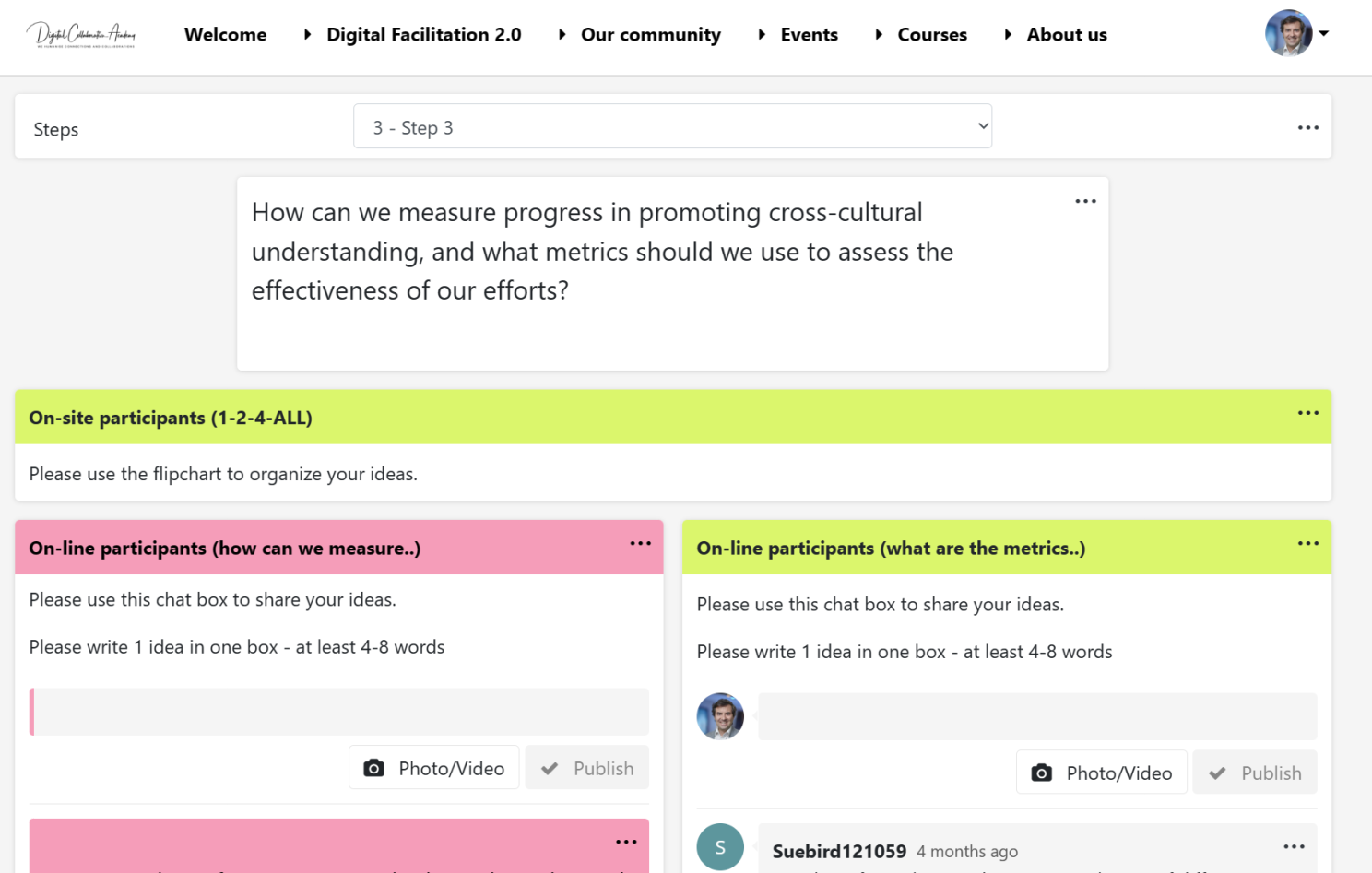
Exploring Cross-Cultural Understanding
The workshop's guiding question was derived from the overarching conference theme, though it's understandable that many attendees may have forgotten it amidst the whirlwind of activities. Our question was:
"How can we measure progress in promoting cross-cultural understanding, and what metrics could be employed to assess our success?"
The workshop concluded with a reflective debrief and discussion, during which attendees shared their experiences and insights on AI's role in group facilitation. These conversations delved into the advantages and implications of incorporating technology, offering a balanced examination of both the merits and drawbacks.
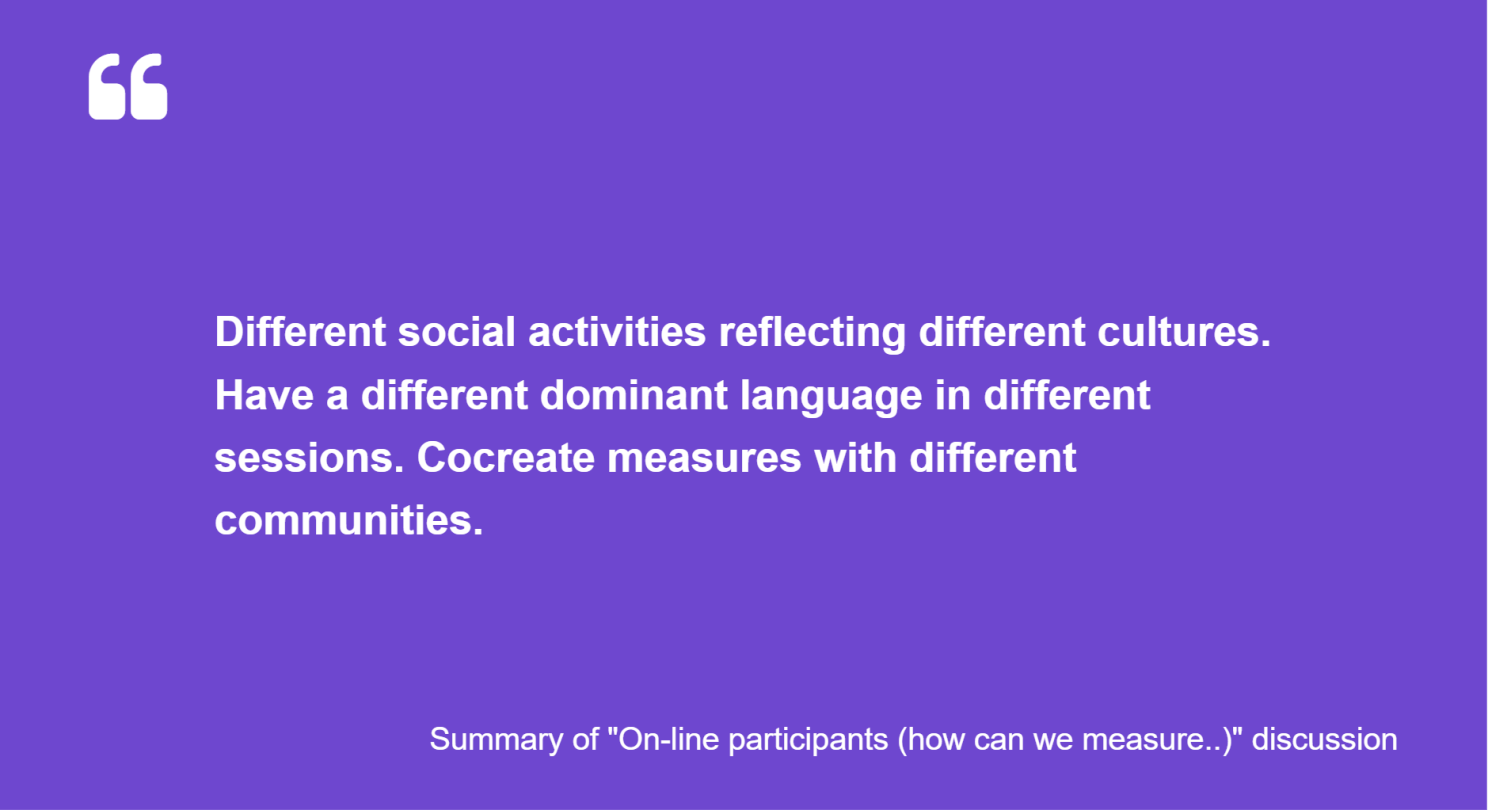
Conclusions
Did the "Digital Facilitation 2.0" workshop leave participants with a deeper appreciation for the dynamic interplay between AI and group facilitation? The results may not have aligned precisely with our expectations, but what was undeniable is that the event sparked ongoing conversations and initiated the formation of a community of facilitators eager to embrace AI and technology's potential to enhance collaborative endeavors in innovative and unprecedented ways.
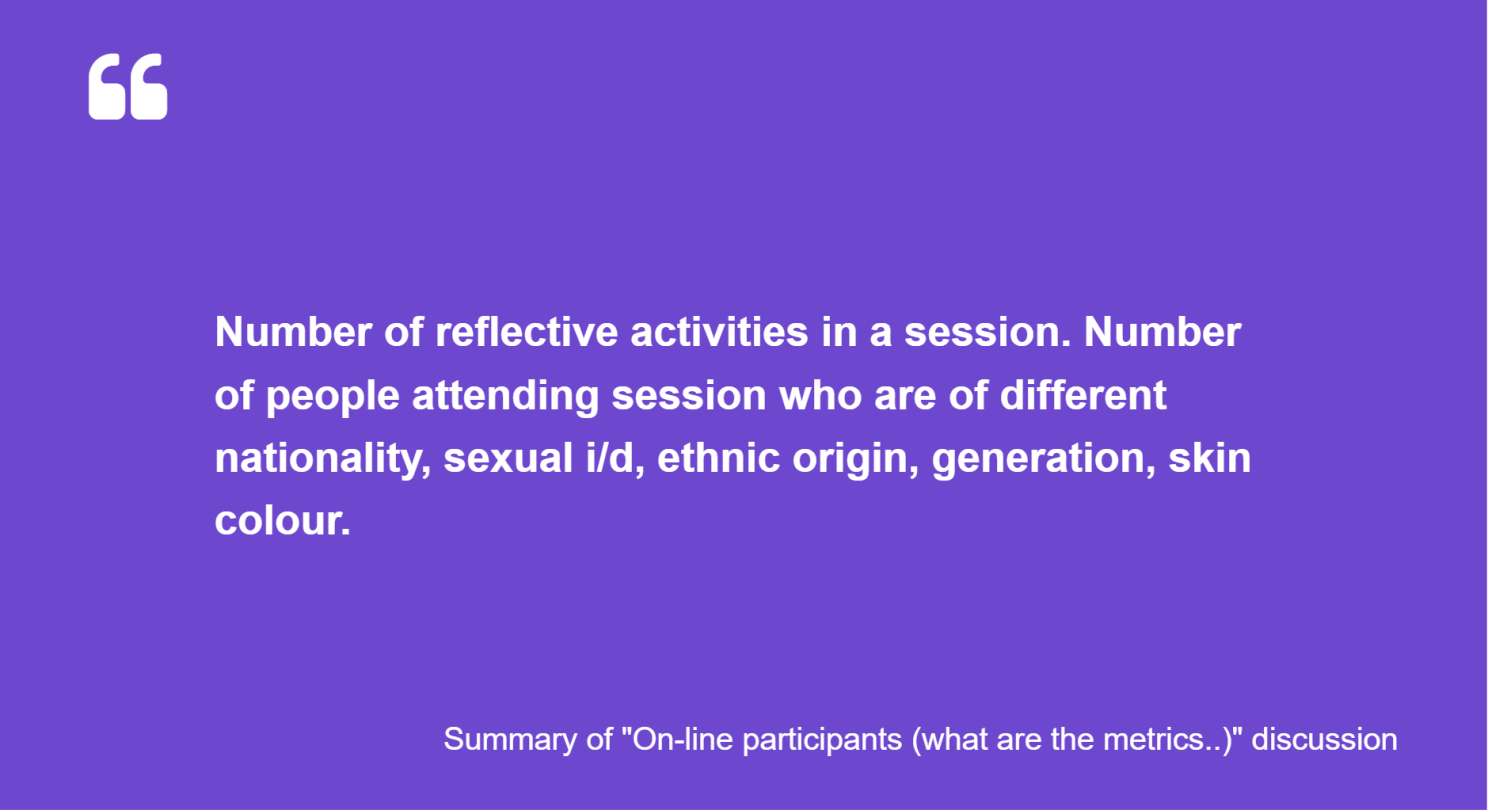
About the author
Paul Nunesdea, also known as Paulo Nunes de Abreu, is a multifaceted professional with expertise as a Facilitator, Master of Ceremonies, Author, and Publisher of the book series "Architecting Collaboration." You can find his LinkedIn profile in English [here], in Spanish [here], or in Portuguese [here].
Paul is an IAF Certified Facilitator™ who specializes in designing and hosting events for a diverse range of clients, including large corporations, municipalities, and regional governments. His unique blend of skills comes from his academic background as a Ph.D. researcher and over 15 years of experience as a former CEO and entrepreneur. This rich experience has honed his client-centric approach, making him eager to co-create triple-win solutions under col.lab | collaboration laboratory it's books' spin-off.
Paul is also a dedicated NGO founder, having co-founded Digital Health Portugal. He hosts prominent events like the Health Regions Summit, the Health Data Forum, and various other initiatives in the healthcare sector.
As an IAF certified professional facilitator, Paul co-founded the Digital Collaboration Academy alongside renowned facilitator Peter Seah. Their shared vision is to establish and nurture a new emerging field known as Digital Facilitation, augmented by the core competencies of the International Association of Facilitators (IAF).
Additional Resources
Beyond Virtual Meetings: Digital tools for higher performing teams and organizations: More
About Howspace: Try it here
Further Reading References
"Reinventing Organizations: A Guide to Creating Organizations Inspired by the Next Stage of Human Consciousness" by Frederic Laloux
This book discusses new ways of organizing and collaborating, touching on aspects of AI and technology's influence on facilitating digital interactions within innovative organizational structures.
"Virtual Teamwork: Mastering the Art and Practice of Online Learning and Corporate Collaboration" by Robert Ubell
While this book primarily focuses on virtual teamwork and online learning, it covers aspects of digital facilitation in virtual settings and how technology, including AI, can enhance collaboration.
"Artificial Intelligence for HR: Use AI to Support and Develop a Successful Workforce" by Ben Eubanks
This book discusses the application of AI in the realm of human resources, including aspects related to the digital facilitation of remote teams and virtual collaboration.
Next webinar
Register FREE for our next webinar here.
About us
My Meeting Support, through its parent company col.lab | collaboration laboratory Ltd, aims to revolutionize the way events and training programs are managed. By bringing together a community of experienced facilitators and leveraging the power of digital tools for collaboration we provide services that are not just about executing an event or a training session, but about crafting unique experiences that promote collaboration, learning, and engagement. It's about fostering connections and creating environments where ideas can thrive and lead to actionable outcomes. This approach ensures that every event is not just a fleeting moment but a lasting impact.
"Talk To Your Meeting Doctors" is a dynamic and engaging series that aims to address common challenges faced in meetings and offer expert advice and strategies to enhance meeting effectiveness. As co-hosts, Paul Nunesdea and Martin Duffy bring their wealth of experience and expertise to the forefront by hosting conversations with renowned guest speakers sharing practical insights and facilitating discussions on topics such as meeting design, participant engagement, decision-making processes, and fostering a culture of collaboration.
This LinkedIn Live event series serves as a valuable platform for professionals from diverse industries and backgrounds to gain actionable knowledge, exchange ideas, and discover innovative approaches to optimize their meeting experiences.
Check out the next upcoming episodes: here

Follow Us
"Be brave enough to start conversations that matter and shift the direction of change for the better."
col.lab | collaboration laboratory is a spin-off from the book series " Architecting Collaboration " and our privacy policy can be consulted here
My Meeting Support is an event services brand by col.lab | collaboration laboratory






